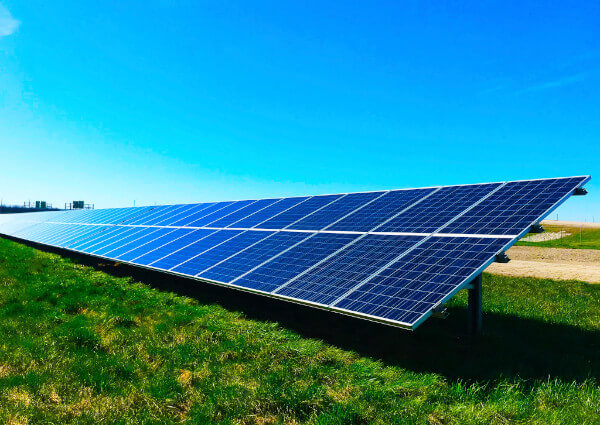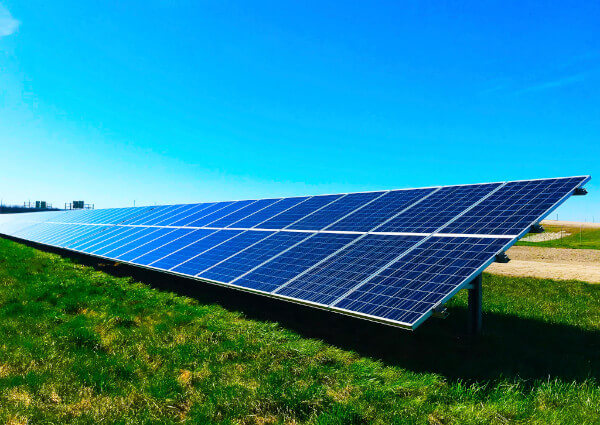How reliable are solar panels?


The growing environmental concerns about climate change, sustainability, gas prices and pollution has led many individuals and governments to pursue alternative power sources instead of fossil fuels. Certainly, Solar power has been at the forefront of the push.
The widespread adoption of solar panels itself is proof that it is a reliable energy source over fossil fuelsSolar power systems offer consistent energy production. Most importantly, it is very reliable as its components require less maintenance and are backed by substantial warranties.
stable investment
Solar panels play an important role in a solar power system. Photovoltaic cells are the most important part of solar panels. When solar energy hits the panels, it activates the electrons. It starts producing DC charges.
An inverter converts the produced DC electricity to AC electricity so that it can be used at homes or offices. Solar energy is a stable investment that can save on electricity bills by generating free electricity.
The National Renewable Energy Laboratory (NREL) monitored 54,500 solar panels from 2000 to 2015. Their conclusion was that only 5 panels out of 10,000 failed each year. It shows that only 1 in every 2,000 solar panels or only .05% of PV modules experienced failure per year during their lifetime.
Depends upon the location
The reliability of solar panels depends upon the location of installation. The solar system entirely works on the sunray. However, the failure rate is more in hot and humid areas. In temperate and dry areas and other cooler areas of the country, the failure rate could be much lesser.
The quality of the solar panels is an important matter of concern. High-quality solar panels from trusted producers tend to stay longer. In conclusion, failure chances are more in cheap and low-quality panels.
Solar Panel Warranty
Solar panels are so reliable that their manufacturers offer power output warranties of either 25 years or 30 years. This gives an assurance that the chances of the solar systems experiencing failures are very less.
Solar panels usually come with a product warranty as well as a performance warranty. Moreover, It is a good idea to partner with a solar installer who offers additional warranties.
The product warranty will cover any defects in the material or workmanship of the panel. The performance warranty ensures that the performance of the panel will be above a specified degradation rate.
Professional Installation
Sometimes solar panels do not produce the desired amount of power due to improper installation. It has nothing to do with the reliability of solar panels. Only a professional and optimal installation can help solar panels to reach their full potential. In short, give your installation job to professional and approved solar installers
One can maximize the output of solar panels by using high-efficiency solar panels, installing them south faced and mounting them on the ground. It will produce up to 30% more energy.
Solar Battery Life Span
Likewise, in the solar system, there are other parts like inverters, racking, the distribution panel, and the electric meter that play an important role in converting solar energy into electricity.
An inverter converts the DC electricity from the panels to usable AC electricity. Normally it has a warranty 10 to 25 years. As inverters are more prone to have issues, it would be ideal to select a quality model from a trusted brand.
The battery system is used as a part of solar installation to store the produced solar power. Compared to other components of a solar system, it has a much shorter life span.
Battery systems usually come with a warranty of 5 to 10 yearsThe life of the battery is determined by the frequency with which it is charged and discharged.
The racking mounts solar panels to the roof or to any other location of installation. It normally comes with a 10 to 20-year warranty on workmanship and material defects.
Return of Investment
Solar energy is preferred by many as it is one of the safest means to power a house. It is highly reliable source of electricity. In addition, a good return on investment.
The price of electricity and weather condition are two factors that has a direct impact on the return of investment by the solar system.
On cloudy and snowy periods, the solar system produces less electricity and this may lead to a more extended payback period.
During the bright and sunny periods, solar system produces immense power. As a result, thereby making an above-average payback.
The same applies to the price of electricity. As the price of electricity hikes, solar power system helps to make significant savings on energy costs.
Solar Payback
To get proper paybacks the solar panels have to be installed with proper orientation. It will help to bring the best out of the solar system. The marginal cost of generating solar energy is zero.
Solar panels are reliable as it produces energy from the sun. Since solar energy is a renewable source of energy, a solar system can produce energy as long as the sun shines. Above all, It is a very reliable source of power.
One can never deplete solar energy. Earth receives solar radiation of 120,000 terawatts which is capable of powering the whole world.
Geographical flexibility makes solar panels very reliable. On the other hand, anyone can access solar energy from any part of the world. Solar panels are reliable as they do not degrade the environment like fossil fuels. It is very environmentally friendly. Certainly, A solar system would be an added advantage to the environment.
Areas near to equator have an added advantage when it comes to solar energySolar PVs are a viable option even in areas that do not receive much sunlight.
Maintenance of Solar panels
It is reliable as they have little to no maintenance. As they do not have any moving parts, maintenance is much lesser. If at all there is any maintenance it will be covered by the huge warranties of the system. The solar panel manufacturers will replace the solar panels with new ones if damages happened during the warranty period.
With the advancement of technology, solar panels are getting better and better. There is a constant improvement in the design, efficiency and manufacture of solar panels.
The average efficiency of solar panels is 15-18%. The new high-efficiency solar panels require less space to produce a specific amount of solar power.
Major setbacks
One of the major setbacks of solar panels is that it does not produce energy during the night and that energy production will be lesser depending on the season. This drawback can easily be overcome either by adding a battery storage system or through net metering.
A battery storage system stores the excess energy produced by the panels during the daytime and uses it later when the panel production is nil or relatively lesser due to weather conditions.
Net metering is an agreement between the consumer and utility company. It allows the solar PV system owner to sell excess solar energy to them and to buy deficit energy from the utility company.
A meter is used to track this energy exchange. Therefore, the main advantage is that the surplus energy earns revenue while the shortage of energy is covered by the grid.
Solar panels are very robust, reliable, and long-lasting. That is to say, they are powerful enough to handle branches of trees or hail storms falling on them.
Solar panels fall in line with the global shift to curb climate change. Many consider this as a first step towards the conservation of the environment.
The post How reliable are solar panels? appeared first on Regen Power.

